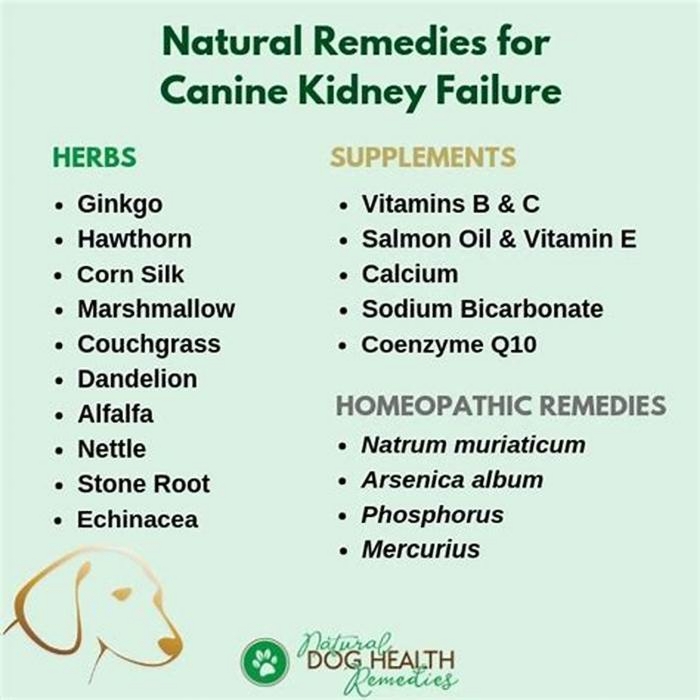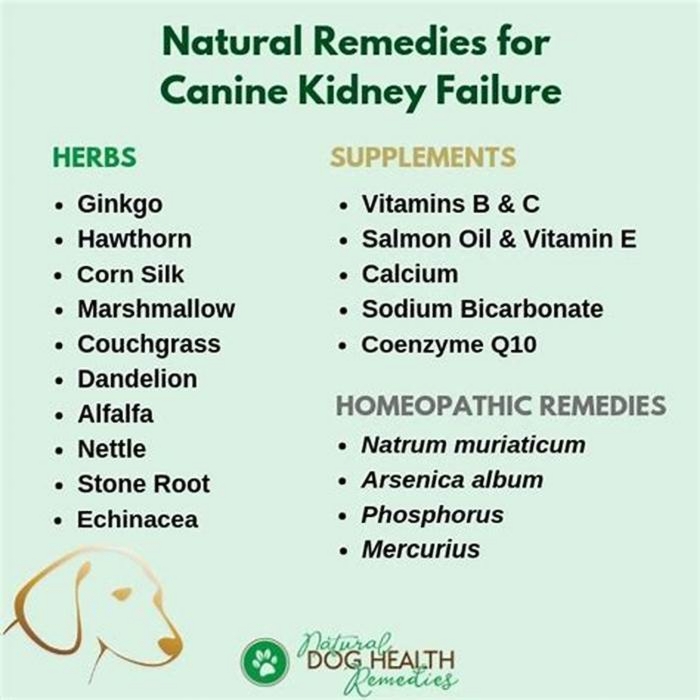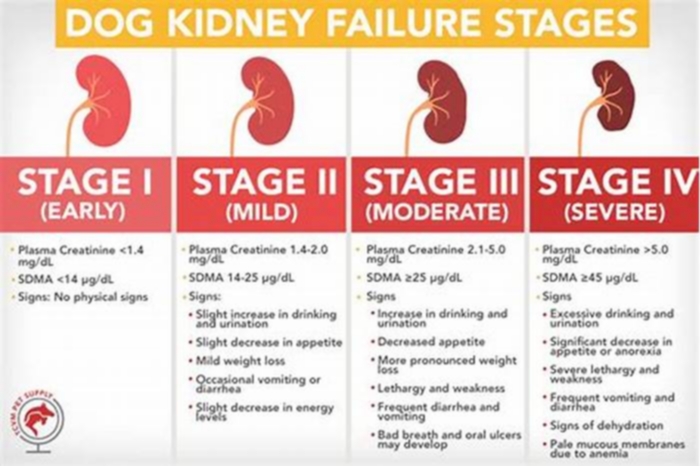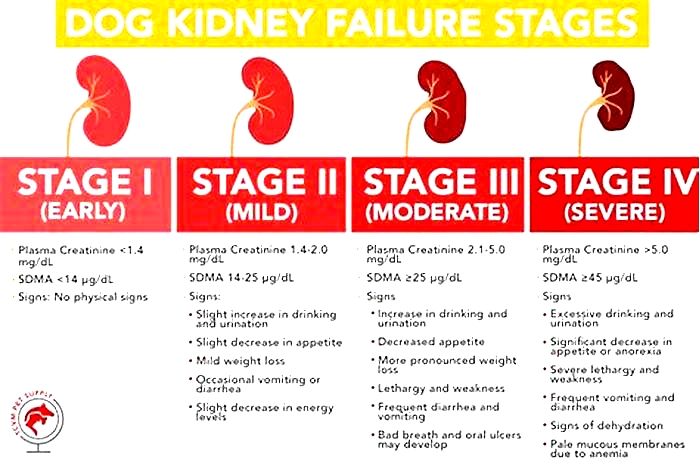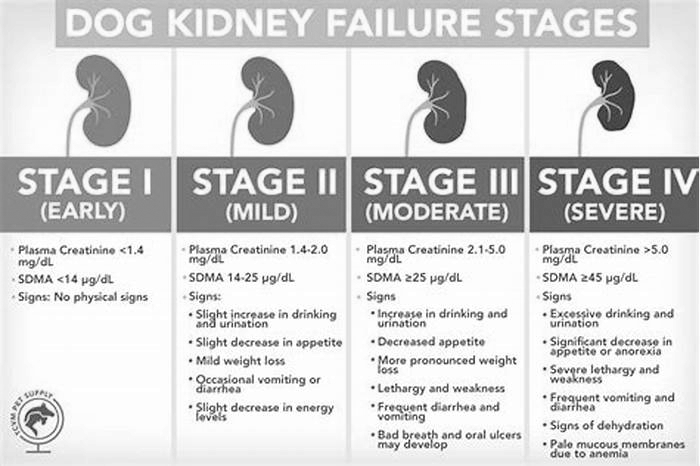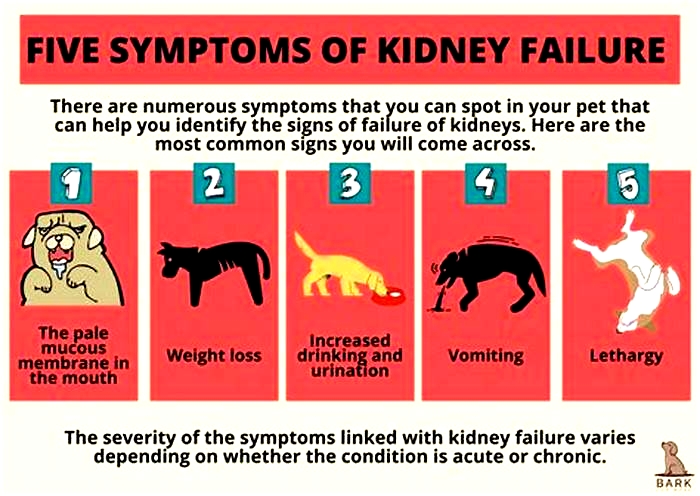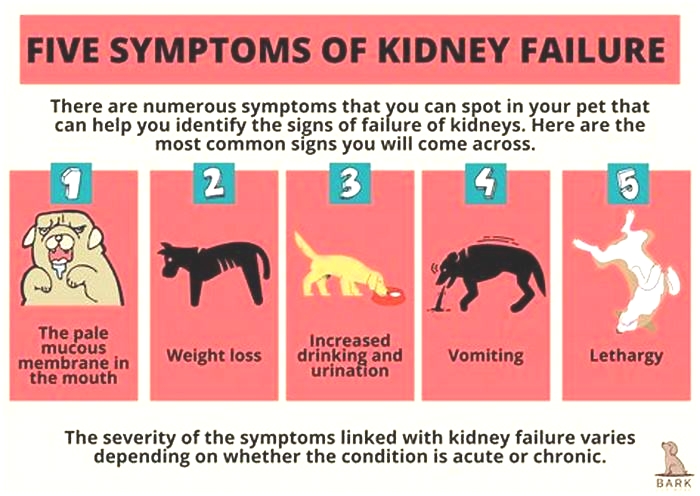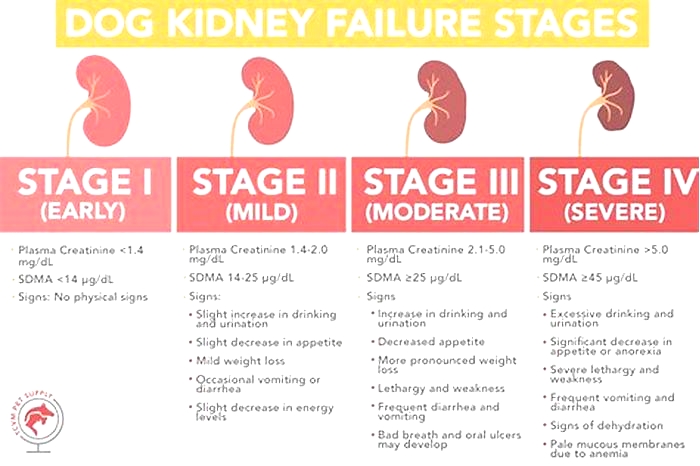kidney failure dog cure
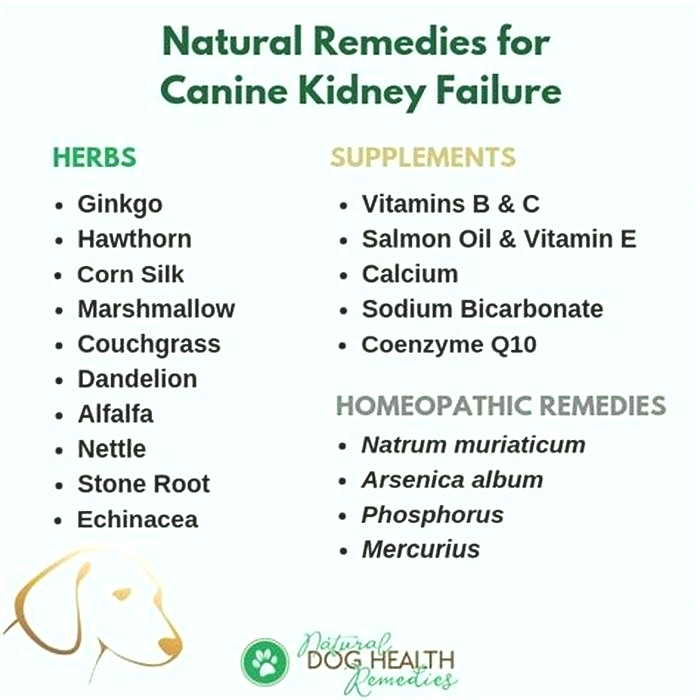
Kidney Failure in Dogs: Causes, Symptoms & Treatment
In this post, well dive into the causes of kidney failure in dogs, common symptoms you should look out for, available treatment options, and more.
Table of Contents
Pro Tip: Not all pet insurance will cover your vet bills if your dog develops a long-term illness. Thats why its very important to have the right pet insurance plan in place.
Types of kidney failure in dogs
Just like in humans, healthy kidneys in dogs control blood pressure, regulate hydration, remove toxins, release hormones needed to produce red blood cells, and maintain a normal electrolyte balance. If the kidney function is impaired, kidney failure occurs. When the kidneys dont work properly, a number of other organs can be affected, including the brain and heart.
Kidney failure (also called renal failure) in dogs can be chronic or acute:
Chronic kidney failure
This occurs when the kidneys lose function gradually and is typically caused by degeneration related to old age. Chronic kidney failure is the most common type of kidney disease in dogs, occurring in 0.5% to 1% of dogs.
Acute kidney failure
This occurs when a canine's kidney function suddenly decreases, usually within hours or a few days. Its typically caused by a severe kidney infection or the consumption of toxins.
The main difference between these two types of kidney failure is that acute kidney failure can be reversed with timely and aggressive treatment. Chronic kidney failure, on the other hand, cant be reversed or cured and it can only be managed. In most cases, the damage to the kidneys has been happening for more than three months and the kidneys will continue to worsen.
What causes kidney failure in dogs?
Chronic kidney failure in dogs
The exact cause of chronic kidney failure is often difficult to pinpoint because of its slow onset. Early symptoms are usually mild and can be easily overlooked or dismissed.
Dental disease is a leading cause of chronic renal failure in senior dogs. Bacteria build up in the animals teeth and enter the digestive system through eating and drinking, affecting the kidneys ability to filter waste over time.
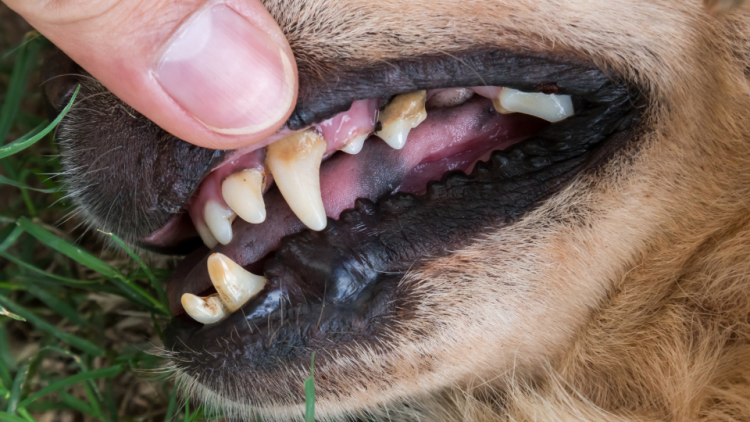
Chronic kidney failure can also be caused by:
- Congenital diseases or birth defects (such as agenesis, when the dog is born missing one or both kidneys)
- Kidney cancer (renal neoplasia)
- Polycystic kidney disease
- Kidney infections
- Fanconi syndrome
- Elevated calcium (hypercalcemia)
- Kidney stones
- Renal dysplasia
- Immune system dysfunction
- Poor blood flow to the kidneys
- Blocked urine movement or flow
- Certain medications (such as NSAIDs and some antibiotics)
Acute renal failure can also lead to chronic renal failure.
Acute kidney failure in dogs
Acute renal failure is most often a result of a dog ingesting poison. It might be antifreeze, household cleaners, or certain drugs. Some human foods like grapes and raisins have also been known to cause kidney failure if eaten frequently and in larger quantities.
Severe bacterial infections can also cause acute kidney failure. Even though kidney infections can occur spontaneously, theres usually a reason why the dog has trouble fighting off the infection, such as urine blockage or kidney stones.
Leptospirosis is one example of a bacterial infection that can cause sudden renal failure in pups. Our canine companions can get leptospirosis by coming into contact with infected urine, water, soil, water, food or bedding, or through a bite from an infected animal. Be sure to talk to your vet about vaccinating against this disease.
Kidney issues can also result from decreased blood flow through the kidneys. This can be caused by severe dehydration (usually from severe diarrhea or vomiting), heatstroke, or snake bites, and bee stings.
Signs of kidney failure in dogs
The most common symptoms in dogs with kidney failure include:
- Excessive thirst and urination
- Lethargy
- Decreased appetite
- Weight loss
- Bad breath
- Pale gums
- Vomiting
- Blood in urine
- Ulcers in the mouth
- Uncoordinated movement such as stumbling
- Intestinal seizures
Dogs with chronic renal failure might not show any clinical signs at first, or the signs might be very subtle.
In severe renal failure, the amount of urine might actually decrease, or the dog might stop making urine altogether. As the condition worsens, other symptoms may include blood in the stool, black or tarry stool, or vomiting blood.
Diagnosing kidney failure in dogs
Blood and urine tests are commonly performed to diagnose kidney failure. Other tests, such as ultrasound, X-rays, and special blood tests might be needed in order to assess the severity of the disease and determine the cause for the failure. In some cases, a biopsy of the kidney might be recommended.
How to treat kidney failure in dogs
Treatment for kidney failure in dogs will depend on the severity of the condition and the underlying reason that caused their kidney to fail.
Dogs with acute renal failure can get very ill and might need to be hospitalized. Milder cases can be treated with antibiotics and fluids on an outpatient basis.
In some cases, dialysis might be necessary. Signs that indicate dialysis should be considered include very high potassium levels, lack of improvement in lab results while the pet receives intravenous fluids, and fluid in the lungs. Both hemodialysis and peritoneal dialysis can be effective but are generally quite expensive.
While damage from acute renal failure is more easily treated, chronic renal failure will cause irreversible damage to your dogs kidneys unless caught early. For that reason, veterinarians generally focus on slowing down the progression of the disease and finding ways to improve the dogs quality of life, usually with medication and diet changes.
Your pups treatment plan might also include:
- Electrolytes to balance out blood levels
- Medications that encourage the production of urine
- Medications to ease gastrointestinal problems
- Medications to reduce vomiting
- Medications for anemia
- Blood pressure management
If kidney disease is left untreated, end-stage renal failure might occur, leading to death. If you suspect your pet has kidney failure, contact your veterinarian or take your dog to an emergency clinic for a diagnosis and treatment.
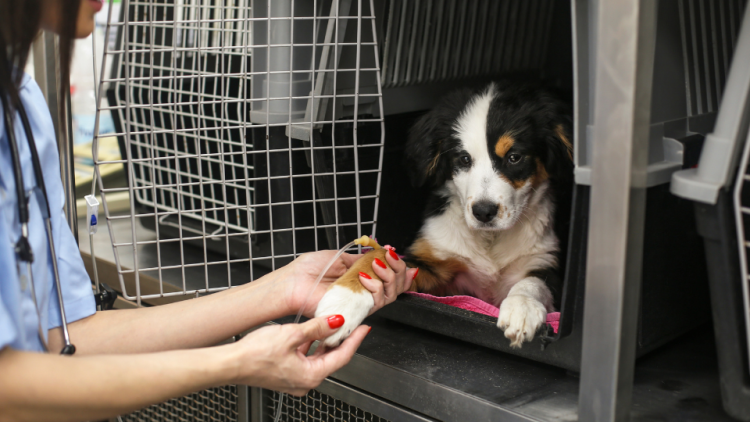
Cost to treat dogs kidney failure
The cost of diagnosis and treatment will also depend on the cause, as well as on how the dog responds. Initial diagnostic tests usually range between $200 and $750, whereas long-term management of chronic kidney failure can cost between $100 and $500 per month, depending on the prescribed medications and how often IV fluid therapy is required.
Pro Tip: Every dog owner should consider pet insurance. Even if you believe you have enough money to cover veterinary costs, pet insurance could still save you thousands of dollars if your dog gets sick or injured.
Whats the prognosis?
Kidney failure is a very serious disease and about 60% of pets suffering from it will either die or be euthanized because of it. In cases when medical treatment has failed, the chance of survival without dialysis is extremely low. About half of the patients that receive dialysis will recover, depending on what caused the failure. Many of them will recover only partially and end up with permanent kidney damage.
However, some pups manage to recover completely and have a good quality of life for years after being diagnosed with the disease.
Talk to your vet about what you should expect after your dog has been diagnosed and treated for kidney failure. The vet might recommend nutritional supplements and/or a therapeutic diet to manage your pups condition.
Preventing kidney failure in dogs
Considering the fact that acute renal failure is usually caused by ingesting toxins or foods like raisins, preventing it is fairly easy. Make sure to get any poisons, medications, and dog-unsafe foods out of your pups reach. You can also get your dog vaccinated for Leptospirosis.
Chronic renal failure is usually age-related and genetically predetermined, so theres not much you can do to prevent it. However, taking your pet for annual wellness checkups and physical exams can increase the chances of catching the disease early and start treatment before it progresses and becomes more serious.
Kidney Failure in Dogs
Kidneys are very busy organs that have lots of responsibilities to keep your dog healthy, from removing toxins to maintaining their blood pressure and helping to create new red blood cells. With so many jobs to do, it can be a scary time if you think your dogs kidneys are failing, so lets go through the common symptoms and possible treatment options for kidney failure in dogs with this guide.
Kidney disease in dogs can affect any breed at any stage in their life and sadly, theres no way of predicting which will develop it and which wont. Although theres nothing you can do to actually prevent your four-legged friend from developing kidney failure in dogs, feeding them a good quality diet throughout their life, and providing them with a constant supply of fresh, clean water will help support their kidneys and, if they do develop kidney failure, it could help to slow down its progress.
Weve created this guide to tell you the most common causes of canine kidney disease and renal failure. It is important for you to involve your vet early in its management.
Stages of kidney disease in dogs
In order to offer the help your dog requires, your vet will need to find out what stage of kidney disease they have reached. Theyll do this by running several blood and urine tests, as well as performing a thorough physical examination.
Here are the stages of kidney disease in dogs:
Stage 1
Healthy kidneys do a great job at removing toxins from a dogs body, but when theyre not in a good shape, they will begin allowing waste to build up in the blood.
However, Stage 1 is very early in the course of kidney disease and theres usually no build-up yet. Dogs with stage 1 kidney disease have low level changes like specific mildly elevated parameters on their bloods or physical kidney abnormalities. Most dogs will not show any outward signs during this stage.
Stage 2
This is the stage where waste starts accumulating in the blood, as a result of reduced renal function. Noticeable symptoms are usually mild or even absent in this stage, although your vet may recommend screening for high blood pressure and protein in your dogs urine.
Stage 3
At this stage, blood samples will contain a moderate amount of waste products and clinical signs are usually present. Many dogs will experience high blood pressure, so screening for this is recommended alongside checking for protein in the urine.
Its at this stage that most dog owners will notice that somethings definitely wrong. Dogs will typically show significant clinical signs, including excessive drinking and urination, tiredness, loss of weight, and potentially mouth ulcers and bad breath.
Stage 4
When dogs reach this very serious stage of the disease, their kidneys are no longer able to filter out waste effectively, and the risk of severe clinical signs and acute deterioration is high. At this point, you will need to work closely with your vet to identify the best treatment options for your dog and consider your dogs quality of life if they are very unwell.
Acute kidney failure in dogs
If your dog has acute kidney failure it means that their kidneys have suddenly stopped working properly. This can be caused by something such as an illness or infection, or because theyve eaten something they shouldnt, like antifreeze. Acute kidney failure in dogs may be able to be treated and reversed but could also be permanent, depending on what has caused it.
Chronic kidney failure in dogs
Chronic kidney failure is more gradual and can take months or even years to develop. It can be caused by a number of things including infections and tumours and unfortunately, by the time its diagnosed, its sometimes too late to reverse.
In the early stages of disease, the healthy areas of the kidney take on the extra work that the damaged areas cant do, meaning that healthy parts work even harder than usual. As the disease progresses, and the unhealthy areas start to outnumber the healthy, the workload simply becomes too much and your dog will show signs of kidney failure.
Chronic kidney failure in dogs is a progressive illness that your vet will need to keep an eye on, but it can usually be managed with a combination of medical treatments and a special diet.
Signs of kidney failure in dogs
There are a number of possible signs of kidney failure in dogs and each dog is different so theres no guarantee that theyll experience the illness in the same way, however, the most common symptoms are as follows:
- Urinating more often urine will usually be very diluted
- Increased drinking to replace lost fluids
- Nausea and vomitingdue to build-up of toxins
- Retching orgoing off their food
- Tiredness and lethargy
- Weight loss
- Pale gums
- Mouth ulcers
- Fragile, weak bones
Be careful about trying to diagnose kidney disease yourself, as the signs of kidney disease in dogs can also be a symptom of other illnesses. The sooner you see your vet for a proper diagnosis, the better. Although theres no cure for kidney disease, early treatment will help to relieve the discomfort caused by the symptoms and support your pets kidneys.
Diagnosing kidney disease in dogs
When diagnosing kidney disease in dogs, your vet will start by testing a sample of pee to see if your dogs urine is being concentrated, whether protein is being lost in their urine and if they have any other problems, like an underlying infection. They might also take a blood test to check for specific kidney function, to get an idea of your dogs overall health and to see if the build-up of toxins has affected any of their other organs.
Monitoring the condition
Your vet may ask you to collect a sample of your dogs urine as a part of monitoring their condition. The best time to collect your dogs urine sample is first thing in the morning, ideally in mid-flow. How you physically collect their pee will depend on whether you have a male or female dog but plastic lunchboxes or soup ladles can come in handy! Your vet will probably provide you with a sterile container to store your sample in or you can use a container such as a clean jam jar (any residue can affect the results, so do make sure the container is very clean).
The fresher the sample, the more accurate the tests will be, so try not to delay in getting the sample to your vet.
How long will a dog with kidney failure live?
The lifespan of a dog with kidney failure will vary greatly depending on the severity of the disease and the efficacy of the treatment theyre receiving. When kidney failure is spotted early and managed properly with the correct treatment, dogs can live several years after being diagnosed.
Dog kidney failure treatment
Depending on how severe the symptoms are, dog kidney failure treatment usually consists of a combination of medical and dietary interventions.
Medication
As kidney failure in dogs can impact so many different bodily functions and cause them to develop conditions such as high blood pressure or anaemia, your vet might recommend specific medications to help treat each symptom. Supplements may also be suggested to replace lost vitamins and help to improve some secondary effects caused by the disease. Its important to remember to only give supplements and medications at the recommendation of your vet.

